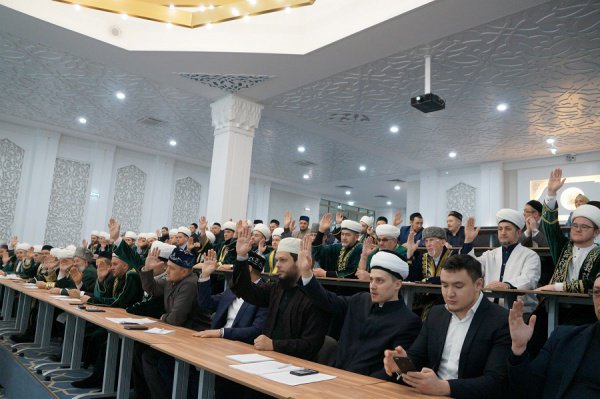I have Abdurrauf Zabirov, the imam of Kazan’s “Mirgaziyan” mosque. He objected to the installation of video cameras in mosques, which provide information directly to the FSB and the Ministry of Internal Affairs. He stated that he had submitted a letter of resignation to the leadership of the Spiritual Administration of Muslims of the Republic of Tatarstan (SAM RT).
This was preceded by a statement from the SAM RT leadership that the initiative for universal camera surveillance in mosques was not only coordinated with them, but came from them, which is why Zabirov found himself at odds not only with the security forces, but also with his immediate superiors.
We were unable to get a clear answer from Mr. Zabirov as to whether the initiative for his departure came from him or from his leadership, to which he responded with verses from the Koran and Hadith about the need to tell the truth, uphold justice, and oppose tyranny. This, too, seems to be an answer…
What is fundamentally different is that a person who dared to publicly take a position opposite to his leadership, especially on the issue of relations with the security forces, is leaving the SAM RT. And this does not surprise anyone, besides, such a development of events was predictable from the very beginning of this story.
But let’s ask ourselves – why is this already perceived as the norm? Probably for the same reason that the rectors of several Moscow universities issued statements over the weekend threatening to expel students who take part in protests. Similar statements were made by Alexander Bezborodov, the rector of the Russian State University for the Humanities (RGGU), and Alexander Lubkov, the rector of the Moscow State Pedagogical University (MPGU).
Obviously, this is the general attitude of the university leadership under pressure from the security forces. Strictly speaking, however, the university administration should have nothing to do with the social activities of its students. Reasons for expulsion can only be academic underachievement or criminal conviction (administrative arrests do not fall into this category).
But who cares about the law in Putin’s Russia? Or such concepts as university autonomy, which allowed universities to be islands of freedom, dissent and student unions? It is clear that such things are impossible in a totalitarian state, to which Russia is returning.
This is especially true for religious institutions – the so-called “traditional religions,” which exist with the permission of the state in exchange for complete loyalty to it. And since in totalitarian states the state, its power, and the security forces are equated, any criticism of the latter is automatically perceived as hostility to the former.
For this reason, we should not be surprised by the “silence of the lambs” in the so-called “spiritual administrations of Muslims”. The times when their muftis and employees were allowed a certain boldness against the background of “democratization” are fast becoming a thing of the past. The current system demands only absolute loyalty from those who wish to remain on board.
This is probably even good, because it will force those who have long tried to avoid it to make a decision about their attitude towards it…

